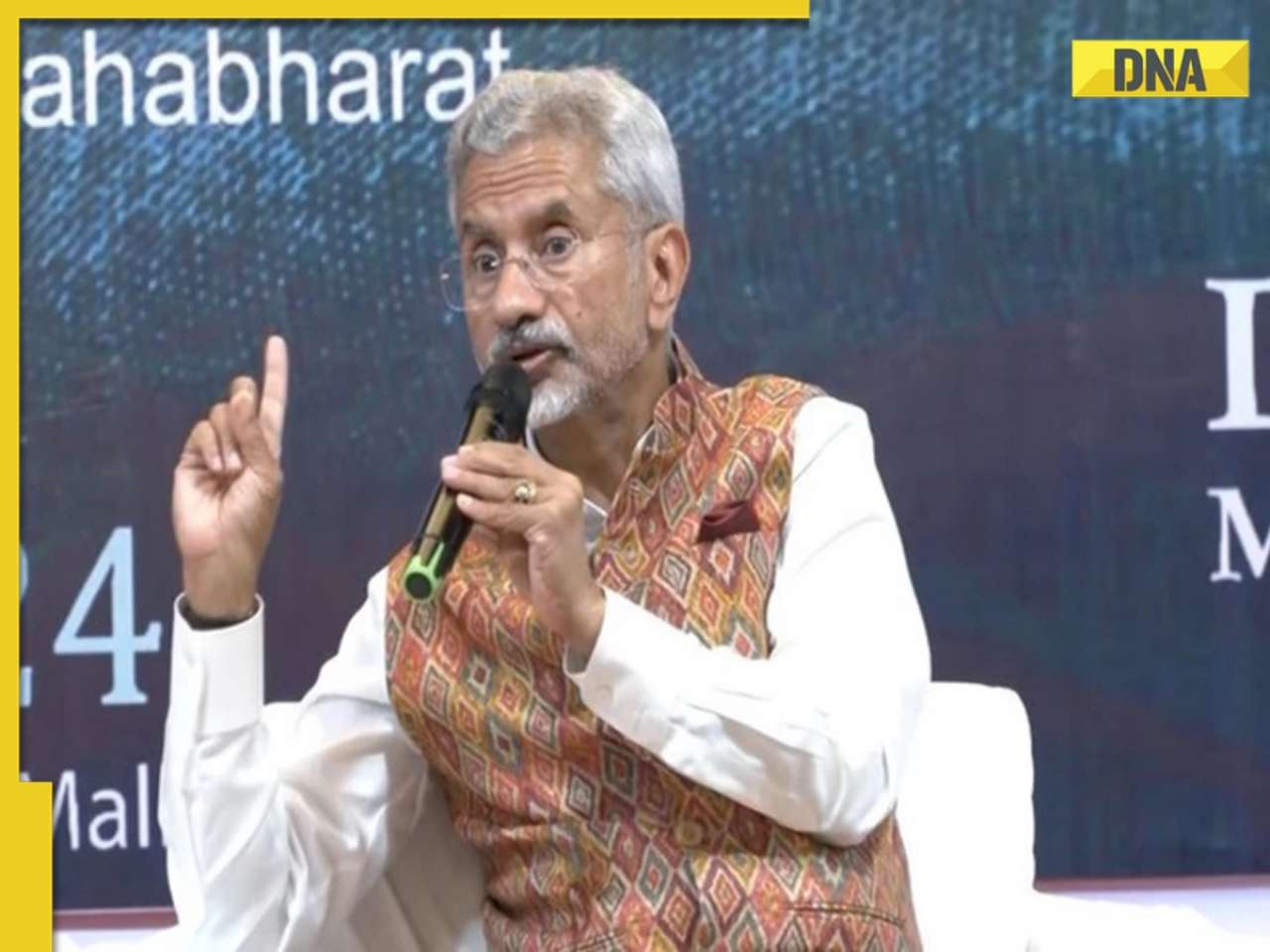In wake of recent incidents of rape in the city, DNA presents an insight into the questionable side of rape charges and its legal implications.
Case 1: A minor girl from Malad recently alleged that a gym instructor had raped her. But later, cops found no evidence to suggest that the youth had sexually abused the girl. The case is under investigation
Case 2: A bar dancer in Nerul accuses a policeman of raping her. Police say evidence suggests that the woman had a relationship with the accused and sex was probably consensual
Case 3: An executive in a Delhi PR company spent two months in Tihar jail for rape. Later, investigations established that he was having an affair with the woman for two years and she wanted him to marry her. When he refused, she filed rape charges which she later withdrew as ‘false’
Case 4: During the 2004 World Social Forum, a South African judge of Indian origin, Sirajuddin Desai, was accused of rape by a fellow delegate from the same country. The sessions court later let him off after she withdrew her complaint and circumstantial evidence hinted at consensual sex
Case 5: In Bhayandar last year, a 17-year-old girl falsely accused her father of rape
In common parlance, it is called a false complaint. Legal eagles call it malicious prosecution.
While rape laws in the country are justifiably stringent, recently a few cases have indicated that the law can be misused, and has end up damaging lives in profound ways. So, if the girl is found to have filed a false complaint, what is the remedy available to the accused, who, ironically, then becomes the victim?
But do the police act?
The general perception is that the cops don’t act. But lawyers say there is no reason why the police should not ruthlessly pursue cases, which have been proved to be false. The police are duty-bound to file a final report in every case, which falls into one of the three categories:
‘A final’: Says the case is true but undetected (the case is left dormant till evidence possibly emerges at a later date)
‘B final’: Says the complaint was false (it could be followed up by prosecution of the complainant)
‘C final’: Neither true nor false.
Yet, there are a few cases where a false complainant is brought to book. In one instance, dating back to the prohibition, a tenant who had falsely implicated his landlady for drunken misbehaviour found himself at the wrong end of the stick when the police detected his complaint to be bogus. He was prosecuted and convicted.
Former DGP S S Puri, a law expert as well, says false complaints are more an aberration than the norm. Police say most false complaints fall under a few laws meant for weaker sections of society like Section 498 A of the IPC (dowry cases), Protection of Civil Rights Act or the Schedule Castes and Scheduled Tribes (Prevention of Atrocities) Act.
Crying rape is not that rare
While on one hand, rape remains a highly under-reported crime, on the other, there are instances of women seeking personal vendetta by crying rape. In the last year alone, there were two such instances reported in the city. But can a minor be sued by the police or by the aggrieved party?
Yes, say some lawyers. Section 82 of the IPC grants unconditional immunity to a child below seven years of age. However, the next section, 83, says, “An act of a child above seven and under 12 of immature understanding: nothing is an offence which is done by a child above seven years of age and under 12 who has not attained sufficient maturity of understanding to judge the nature and consequences of his conduct on that occasion.”
This indicates that anybody above seven years, and with a sound mind, can be prosecuted for an offence. However, offenders under 18 years will be prosecuted by the juvenile justice board.
Advocate Shrikant Bhatt is of the view that anybody of whatever age can be prosecuted for filing a false complaint. “For IPC offenders, it doesn’t matter if he or she is a minor or major,” he says. He/she does not even get the protection of section 82 and section 83.”
Public prosecutor Rohini Salian, who represents the police in courts, however, says minors can be sued only as a juvenile under the Juvenile Justice Act before the Juvenile Justice Board. “Most of these cases, if convicted, end up in a remand home,” she says. “The conditions in remand homes are far from ideal for corrective therapy.”
A better option therefore, says advocate Raju Moray, is to introduce the idea of community service for offenders as is done in the US.
Why arrest an accused unless there is prima facie evidence?
The arrest of the gym instructor has also raised a crucial point of law: is it necessary to arrest any person named in a cognisable complaint? Lawyers claim police jump the gun and promptly arrest an accused in cognisable offences. As a result of this trend, many resort to misuse.
“I know an elderly couple who has been blackmailed by their son and daughter-in-law to sell their house for fear of being arrested by the police in a false dowry case,” says Moray.
Police admit to a certain degree of misuse. And the fact that police often act promptly on such complaints encourages their misuse, feel lawyers.
“It is not imperative for the police to arrest an accused on the basis of a complaint,” says Bhatt. Section 157 of the IPC says if the police receive information about a cognisable offence, it “should proceed to the spot, investigate facts and circumstances of the case, and, if necessary, take measures for the discovery and arrest of the offender.”
Cops, however, dispute this point. “We are damned if we do and damned if we don’t,” says a senior police officer. “Take this girl’s case. Had we not arrested the gym instructor, there would have, probably, been a huge women’s morcha to the police station.”
Another police officer points out that in a complaint of rape it is important to arrest the accused. “How else can we conduct a medical examination or interrogate him?” Most importantly, SC judgments clearly prescribe arrest “in prima facie serious cases”.
Section 177
A false complainant can be prosecuted for knowingly furnishing false information to a public servant “regarding the commission of an offence.” The section provides for a two-year jail term or fine or both. However, the police cannot start investigations under without a magistrate’s permission.
Section 182
The victim can also seek recourse to Section 182 of the IPC, which deals with giving false information to a public servant in order “to cause him to use his power to injure or annoy anybody”. The sentence for this offence is maximum imprisonment of six months or fine or both.
Section 211
This section goes a step further and slaps a punishment of the same description on a false complainant that would be applicable on the accused had the charge been proved.
Section 376
Rape carries an imprisonment of not less than seven years extending up to life and a fine. This provision is invoked in a false charge of offence meant with the intent to injure in such a manner that gets criminal proceedings launched against that person. Proving the “intention” of the complainant holds the key.
Section 499
Apart from police action, the aggrieved party can also file a criminal case for defamation, under Section 499. The punishment in the latter case could go up to two years in jail, along with a fine.
Section 203
A multi-causes civil suit for damages under the head of defamation causing trauma, shock damage to a career is also possible. Another provision that could be invoked on a false complainant is Section 203, which deals with giving false information concerning an offence.
![submenu-img]() Meet IIT-JEE topper with AIR 1, son of government school teachers, he went on to pursue...
Meet IIT-JEE topper with AIR 1, son of government school teachers, he went on to pursue...![submenu-img]() Salman Khan house firing case: One more Lawrence Bishnoi gang member arrested by Mumbai Police
Salman Khan house firing case: One more Lawrence Bishnoi gang member arrested by Mumbai Police ![submenu-img]() Mukesh Ambani to host Anant-Radhika's second pre-wedding function: Trip to start from Italy with 800 guests and end in..
Mukesh Ambani to host Anant-Radhika's second pre-wedding function: Trip to start from Italy with 800 guests and end in..![submenu-img]() Driver caught on camera running over female toll plaza staff on Delhi-Meerut expressway, watch video
Driver caught on camera running over female toll plaza staff on Delhi-Meerut expressway, watch video![submenu-img]() 'If you come and do something here...': EAM S Jaishankar on India's 'message' against terrorism
'If you come and do something here...': EAM S Jaishankar on India's 'message' against terrorism![submenu-img]() Meet IIT-JEE topper with AIR 1, son of government school teachers, he went on to pursue...
Meet IIT-JEE topper with AIR 1, son of government school teachers, he went on to pursue...![submenu-img]() TN 11th Result 2024: TNDGE Tamil Nadu HSE (+1) result declared, direct link here
TN 11th Result 2024: TNDGE Tamil Nadu HSE (+1) result declared, direct link here![submenu-img]() Meet doctor who cracked UPSC exam with AIR 9 but didn’t became IAS due to…
Meet doctor who cracked UPSC exam with AIR 9 but didn’t became IAS due to…![submenu-img]() TN 11th Result 2024 to be declared today; know how to check
TN 11th Result 2024 to be declared today; know how to check![submenu-img]() Meet man who worked as coolie, studied from railway's WiFi, then cracked UPSC exam to become IAS, secured AIR...
Meet man who worked as coolie, studied from railway's WiFi, then cracked UPSC exam to become IAS, secured AIR...![submenu-img]() DNA Verified: Is CAA an anti-Muslim law? Centre terms news report as 'misleading'
DNA Verified: Is CAA an anti-Muslim law? Centre terms news report as 'misleading'![submenu-img]() DNA Verified: Lok Sabha Elections 2024 to be held on April 19? Know truth behind viral message
DNA Verified: Lok Sabha Elections 2024 to be held on April 19? Know truth behind viral message![submenu-img]() DNA Verified: Modi govt giving students free laptops under 'One Student One Laptop' scheme? Know truth here
DNA Verified: Modi govt giving students free laptops under 'One Student One Laptop' scheme? Know truth here![submenu-img]() DNA Verified: Shah Rukh Khan denies reports of his role in release of India's naval officers from Qatar
DNA Verified: Shah Rukh Khan denies reports of his role in release of India's naval officers from Qatar![submenu-img]() DNA Verified: Is govt providing Rs 1.6 lakh benefit to girls under PM Ladli Laxmi Yojana? Know truth
DNA Verified: Is govt providing Rs 1.6 lakh benefit to girls under PM Ladli Laxmi Yojana? Know truth![submenu-img]() Remember Harsh Lunia? Just Mohabbat child star, here's how former actor looks now, his wife is Bollywood's popular...
Remember Harsh Lunia? Just Mohabbat child star, here's how former actor looks now, his wife is Bollywood's popular...![submenu-img]() Mother's Day 2024: Bollywood supermoms who balance motherhood, acting, and run multi-crore businesses
Mother's Day 2024: Bollywood supermoms who balance motherhood, acting, and run multi-crore businesses![submenu-img]() Rocky Aur Rani's Golu aka Anjali Anand shocks fans with drastic weight loss without gym, says fitness secret is...
Rocky Aur Rani's Golu aka Anjali Anand shocks fans with drastic weight loss without gym, says fitness secret is...![submenu-img]() In pics: Ram Charan gets mobbed by fans during his visit to Pithapuram for ‘indirect campaign’ for uncle Pawan Kalyan
In pics: Ram Charan gets mobbed by fans during his visit to Pithapuram for ‘indirect campaign’ for uncle Pawan Kalyan![submenu-img]() Streaming This Week: Yodha, Aavesham, Murder In Mahim, Undekhi season 3, latest OTT releases to binge-watch
Streaming This Week: Yodha, Aavesham, Murder In Mahim, Undekhi season 3, latest OTT releases to binge-watch![submenu-img]() Haryana Political Crisis: Will 3 independent MLAs support withdrawal impact the present Nayab Saini led-BJP government?
Haryana Political Crisis: Will 3 independent MLAs support withdrawal impact the present Nayab Saini led-BJP government?![submenu-img]() DNA Explainer: Why Harvey Weinstein's rape conviction was overturned, will beleaguered Hollywood mogul get out of jail?
DNA Explainer: Why Harvey Weinstein's rape conviction was overturned, will beleaguered Hollywood mogul get out of jail?![submenu-img]() What is inheritance tax?
What is inheritance tax?![submenu-img]() DNA Explainer: What is cloud seeding which is blamed for wreaking havoc in Dubai?
DNA Explainer: What is cloud seeding which is blamed for wreaking havoc in Dubai?![submenu-img]() DNA Explainer: What is Israel's Arrow-3 defence system used to intercept Iran's missile attack?
DNA Explainer: What is Israel's Arrow-3 defence system used to intercept Iran's missile attack?![submenu-img]() Salman Khan house firing case: One more Lawrence Bishnoi gang member arrested by Mumbai Police
Salman Khan house firing case: One more Lawrence Bishnoi gang member arrested by Mumbai Police ![submenu-img]() Meet actress, who got rejected for her looks, had no hit for 15 years; later beat Alia, Deepika, Katrina at box office
Meet actress, who got rejected for her looks, had no hit for 15 years; later beat Alia, Deepika, Katrina at box office![submenu-img]() Abdu Rozik breaks silence on his wedding announcement being called ‘publicity stunt’: ‘The whole world is…’
Abdu Rozik breaks silence on his wedding announcement being called ‘publicity stunt’: ‘The whole world is…’![submenu-img]() Meet actress who made debut with Salman Khan, had super flop career, then got TB, now lives in chawl, runs..
Meet actress who made debut with Salman Khan, had super flop career, then got TB, now lives in chawl, runs..![submenu-img]() Meet actress who worked with Naseeruddin Shah, sister of popular models, is now getting trolled on social media for..
Meet actress who worked with Naseeruddin Shah, sister of popular models, is now getting trolled on social media for..![submenu-img]() Driver caught on camera running over female toll plaza staff on Delhi-Meerut expressway, watch video
Driver caught on camera running over female toll plaza staff on Delhi-Meerut expressway, watch video![submenu-img]() Delhi man takes 200 flights in 110 days, steals lakhs worth of jewelry from passengers
Delhi man takes 200 flights in 110 days, steals lakhs worth of jewelry from passengers![submenu-img]() Viral video: Man makes paratha with 'diesel', internet reacts
Viral video: Man makes paratha with 'diesel', internet reacts![submenu-img]() Viral video of 'black jalebi' leaves internet in shock; netizens say 'hey bhagwan...'
Viral video of 'black jalebi' leaves internet in shock; netizens say 'hey bhagwan...'![submenu-img]() Real-life Bambi and Thumper? Adorable deer and rabbit video melts hearts online
Real-life Bambi and Thumper? Adorable deer and rabbit video melts hearts online










































)
)
)
)
)
)